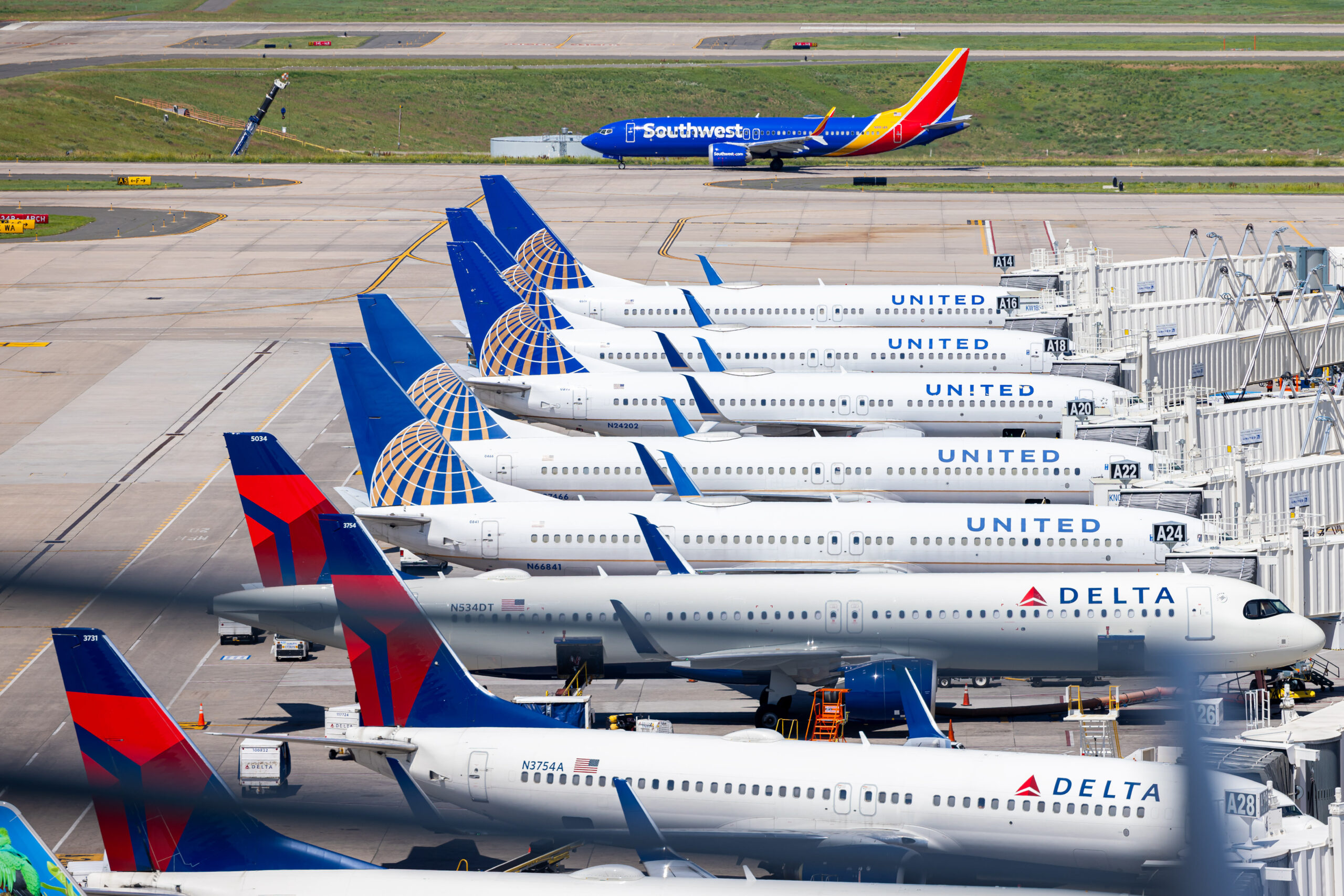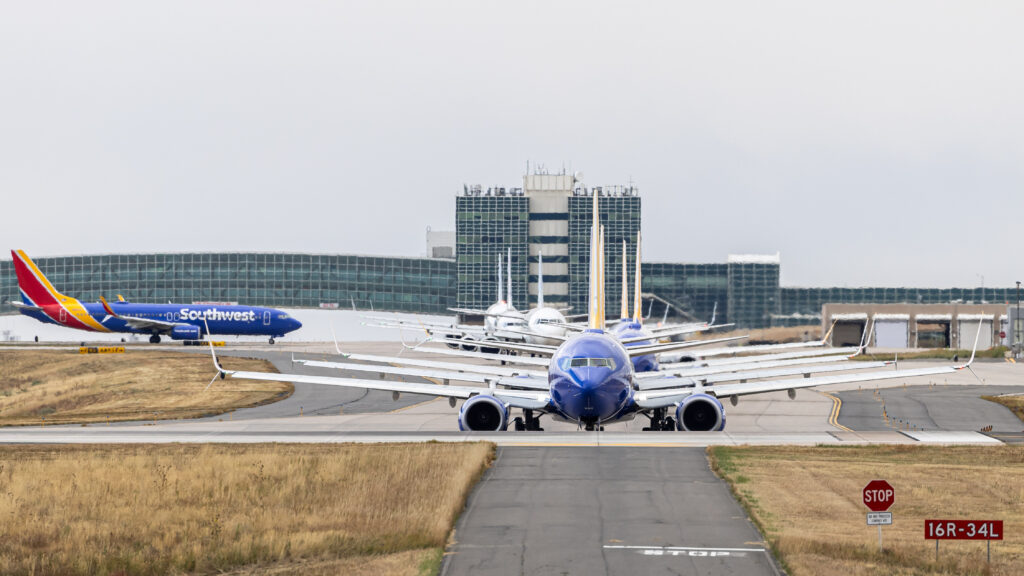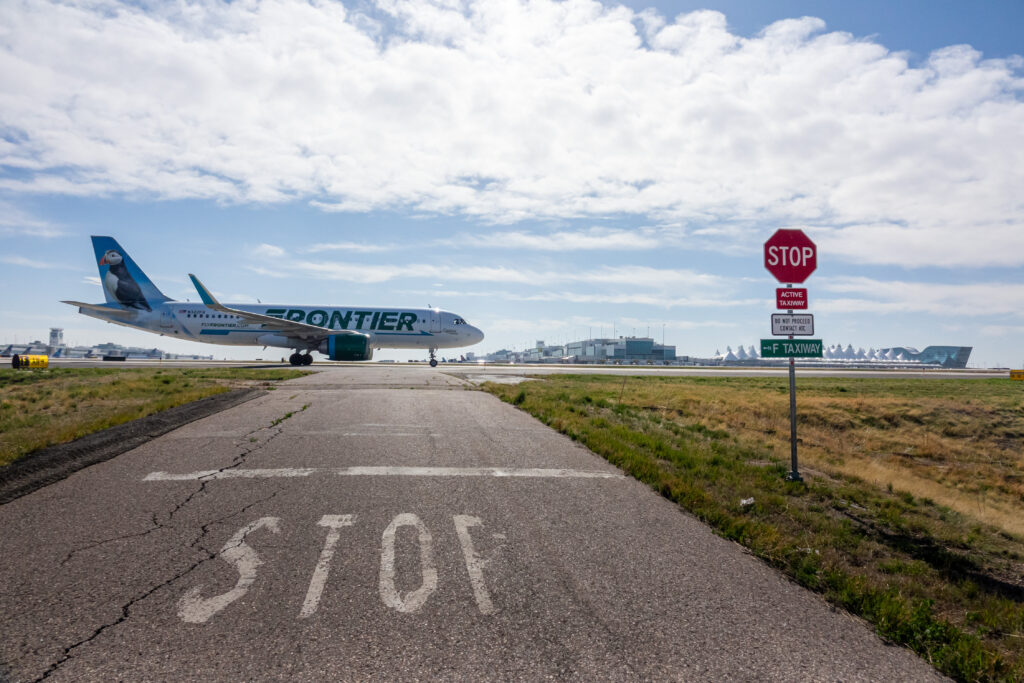DOT’s Airline Refund Ruling: What You Need to Know
New legislation will enhance passenger rights and remove the hassle of requesting refunds
by Fergus Cole
April 24, 2024

Photo: Courtesy of Denver International Airport.
The U.S. Department of Transportation (DOT) has recently issued a new ruling that mandates airlines to refund their passengers in case of a flight cancellation, significant delay, or baggage loss. This new policy is expected to relieve travelers in the United States.
The Biden Administration has confirmed the DOT’s new directive, ensuring that passengers affected by flight disruptions and baggage handling mishaps promptly receive an automatic cash refund.
Our department just issued rules to protect people from hidden airline fees and to require airlines to give passengers automatic cash refunds when owed. No more having to fend for yourself and jump through hoops to get your money back—airlines will have to automatically do this. pic.twitter.com/Jv7dFmnNkI
— Secretary Pete Buttigieg (@SecretaryPete) April 24, 2024
The new rule will apply to air passengers whose flights are canceled, significantly delayed, have their checked bags lost or significantly delayed, or fail to receive any extra services they paid for.
“Passengers deserve to get their money back when an airline owes them – without headaches or haggling,” said U.S. Transportation Secretary Pete Buttigieg. “Our new rule sets a standard to require airlines to promptly provide cash refunds to their passengers.”
Before this historic ruling, passengers were left at the mercy of their airline’s refund policy, which would vary significantly regarding what sort of flight disruptions and changes warranted compensation. This variation in each carrier’s policy often led to confusion among passengers as to what they were owed, and this new guidance is intended to make things clearer for consumers and put a stop to airlines using deceptive practices to refuse refunds after high levels of flight disruption.
Under the new regulation, there are three main instances in which passengers are now entitled to a refund.
Firstly, a refund must be provided if a passenger’s flight is canceled or ‘significantly changed’ and they refuse to accept any alternative travel or credits offered by the airline.

Photo: Courtesy of Denver International Airport.
A significant change refers to any domestic flight delayed by more than three hours, any international flight delayed by more than six hours, a change in departure or arrival airport, any extra connections, or any flight where the passenger is downgraded to a lower cabin class. It also applies to flights with a different connection or aircraft less accessible for those with disabilities.
Secondly, passengers will be entitled to a refund if their checked baggage is lost or significantly delayed in being returned to them. A significant delay applies to waits of more than 12 hours after arrival for domestic flights and 15-30 hours after an international service, depending on the duration of the flight.
Passengers who pay for additional services, such as in-flight Wi-Fi, preferred seat selection, or in-flight entertainment, will be refunded if these services are not provided.
The new rules will also ensure passengers receive what they are owed efficiently and hassle-free. Previously, disrupted passengers would often have to spend time searching through their airline’s website for the refund process, filling out lengthy digital forms, or waiting hours on the phone. It will also stop airlines from providing refunds through travel credits or vouchers that prevent passengers from booking alternative travel arrangements with other carriers.
Under the latest regulations, airlines must provide applicable refunds automatically, without the passenger having to request them, while any refunds must be issued within seven business days for credit card payments and 20 calendar days for any other forms of payment.
All compensation must also be in the form of a cash refund no matter which payment method the passenger used, including airline miles, unless the passenger specifically requests a voucher or travel credits. The refunds must match the full value of the passenger’s purchase, minus any services already used, and include any extra fees and taxes.

Photo: Frontier, Airbus A320neo. Courtesy of Denver International Airport.
Airlines are also now required to promptly notify their passengers of any flight cancellations or changes, while passengers who can’t travel due to government restrictions or medical advice must be provided with travel credits or vouchers.
This new rule is the latest in a series of new directives imposed by the Biden Administration that have provided consumers with more rights and stopped deceptive practices within the airline industry. Other examples include government pressure leading to all major U.S. airlines offering to guarantee free rebooking, meal vouchers, and accommodation for passengers affected by flight disruptions, as well as the return of over $3 billion in unpaid refunds to airline passengers.
The DOT is also pursuing directives that will prevent airlines from charging families to sit together when flying and expand the rights for wheelchair users to fly safely and with dignity.




